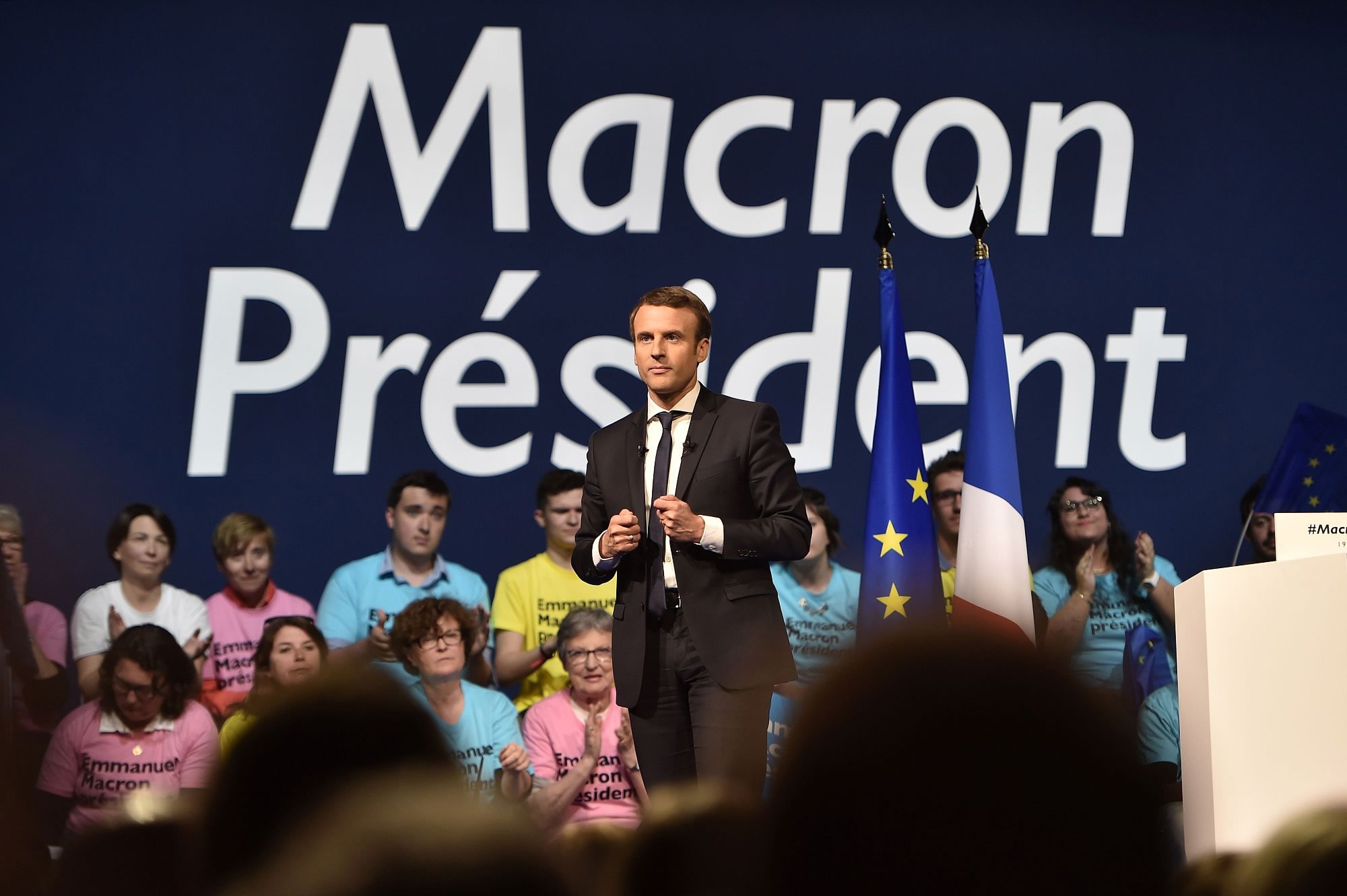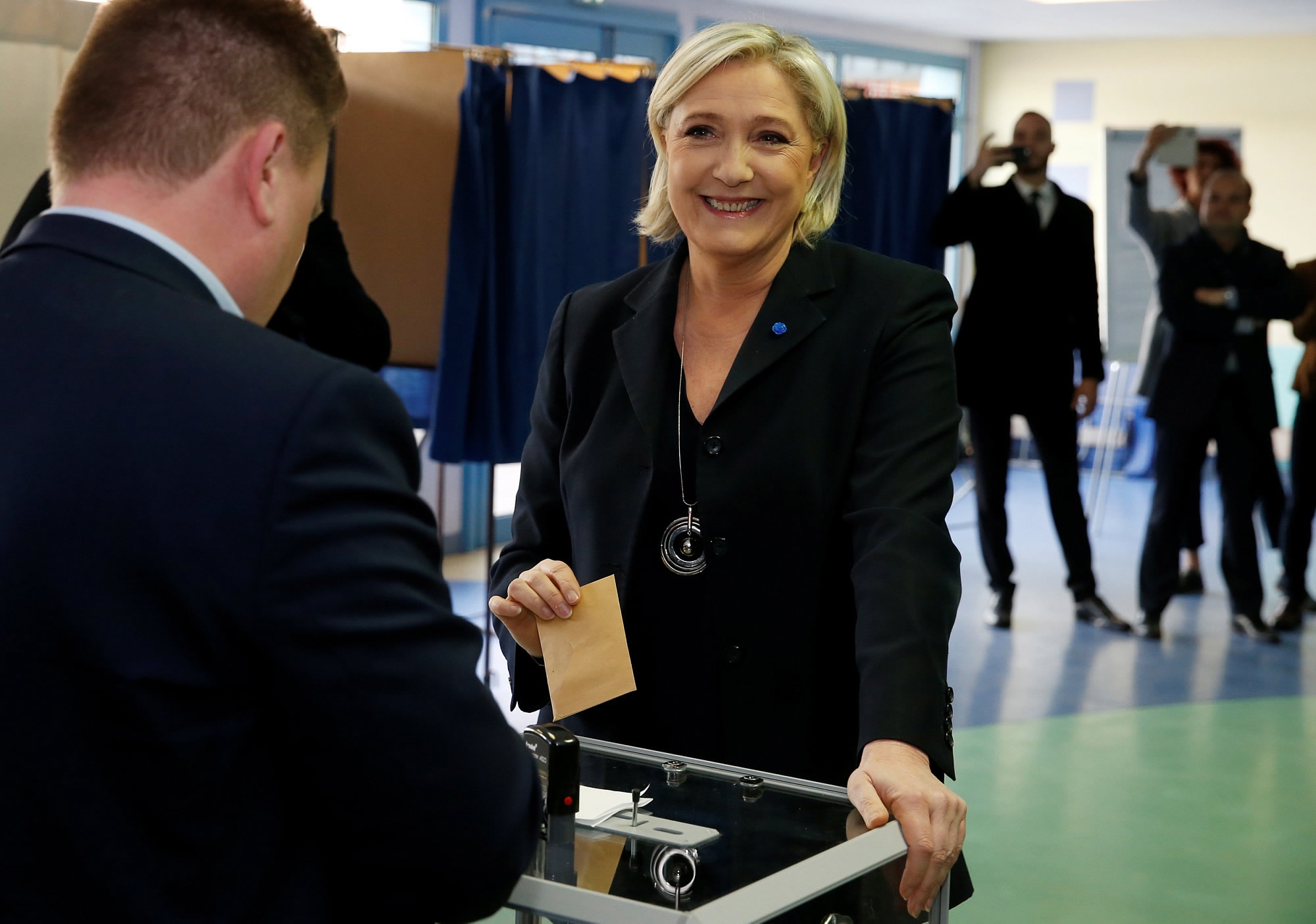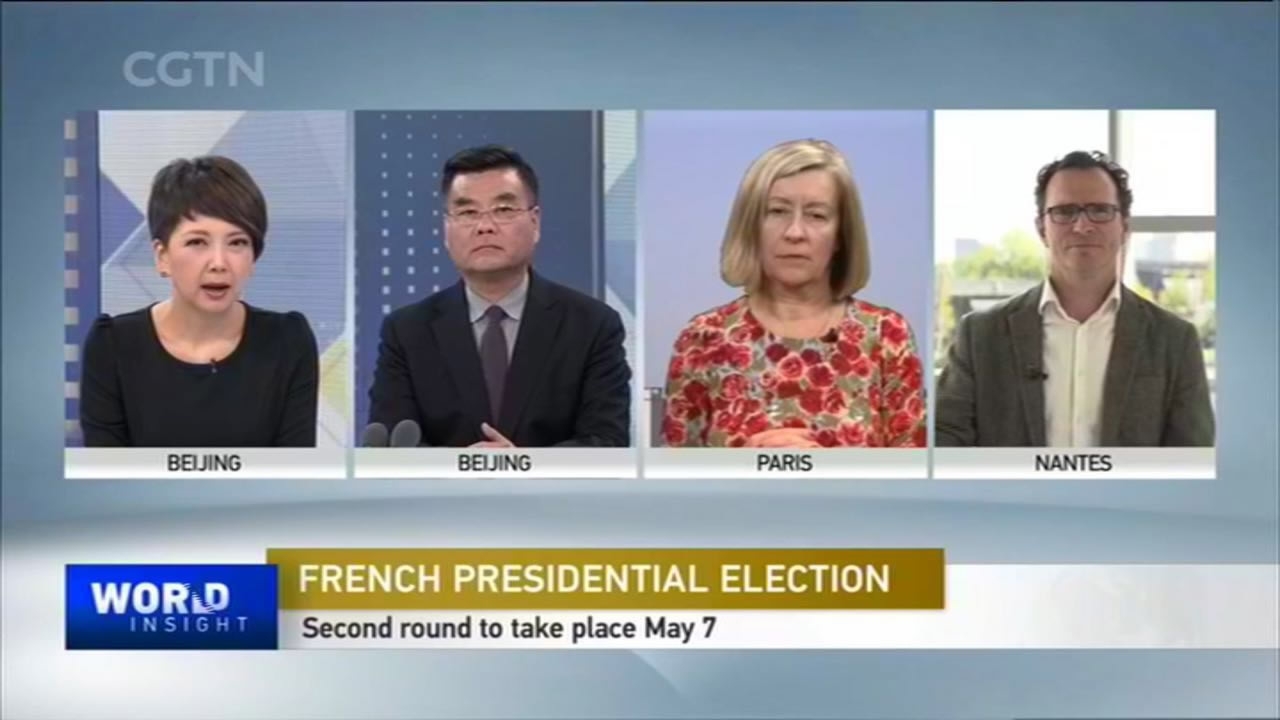By CGTN's Chen Pan
Pro-European Emmanuel Macron is set to face far-right candidate Marine Le Pen in the French presidential run-off on May 7, according to near-final results.
With Macron and Le Pen sharing entirely opposite visions on European Union, the election is now expected to have an impact not only on the future of France, but also the whole Europe.
Some polls suggest Le Pen, who has promised to hold a referendum on France’s EU membership, would then lose to Emmanuel Macron, the former Socialist economy minister under Francois Hollande, who is running as an independent centrist.

Emmanuel Macron at a campaign speech / CFP photo
“All the other candidates, according to polls, will actually beat her. So this is kind of a race among the other candidates to be against her to be assured of victory. I think this is very sad because the image of France is really badly damaged by the fact that the extreme right can actually qualify in a country like France, with what it is defending and promoting, which is racism,” said Helene Conway-Mouret, a member of the French Senate.
Twenty-five Nobel Prize winners on Tuesday denounced the "anti-European" and "protectionist" programs of certain presidential candidates, including Marine Le Pen, cautioning against a possible "destabilization" of France and Europe.
“I believe this [Le Pen’s program] is going to be a very brutal program on social issues and will bring instability in France. So I just hope they would be wise and make the right choice,” Conway-Mouret added.

Marine Le Pen cast her vote on April 23 / CFP photo
Le Pen’s Front National party is promoting a cap on immigration of 10,000 per year.
Yves Pascouau, the Director of Migration and Mobility Policies at the European Policy Center, pointed out that rather than seeing a division between the socialist and the conservative parties, France is seeing more of an opposition between populism and reform.
“The main defining issue today in France is the opposition between the populists, those who want to withdraw from globalization or want to reform it in a very strong manner, and the reformists, those want to stay in the globalization phenomenon, and those understand that we can change the things but within the mechanism,” said Pascouau.

World Insight Screen Shot
Cui Hongjian, director of the Department for European Studies at the China Institute of International Studies, reminded how events happening in European countries influence each other.
“After the election in France, especially for the far-right party in Germany, they will try to interpret some message from the result,” said Cui.
And for the first round of the election, Cui believes more French people acted on their emotions when it came to voting.
“But maybe for the second round, hopefully, there will be a rational decision, because no matter who will be the next president, this election will be regarded as a big revolutionary change in French politics,” Cui added.









